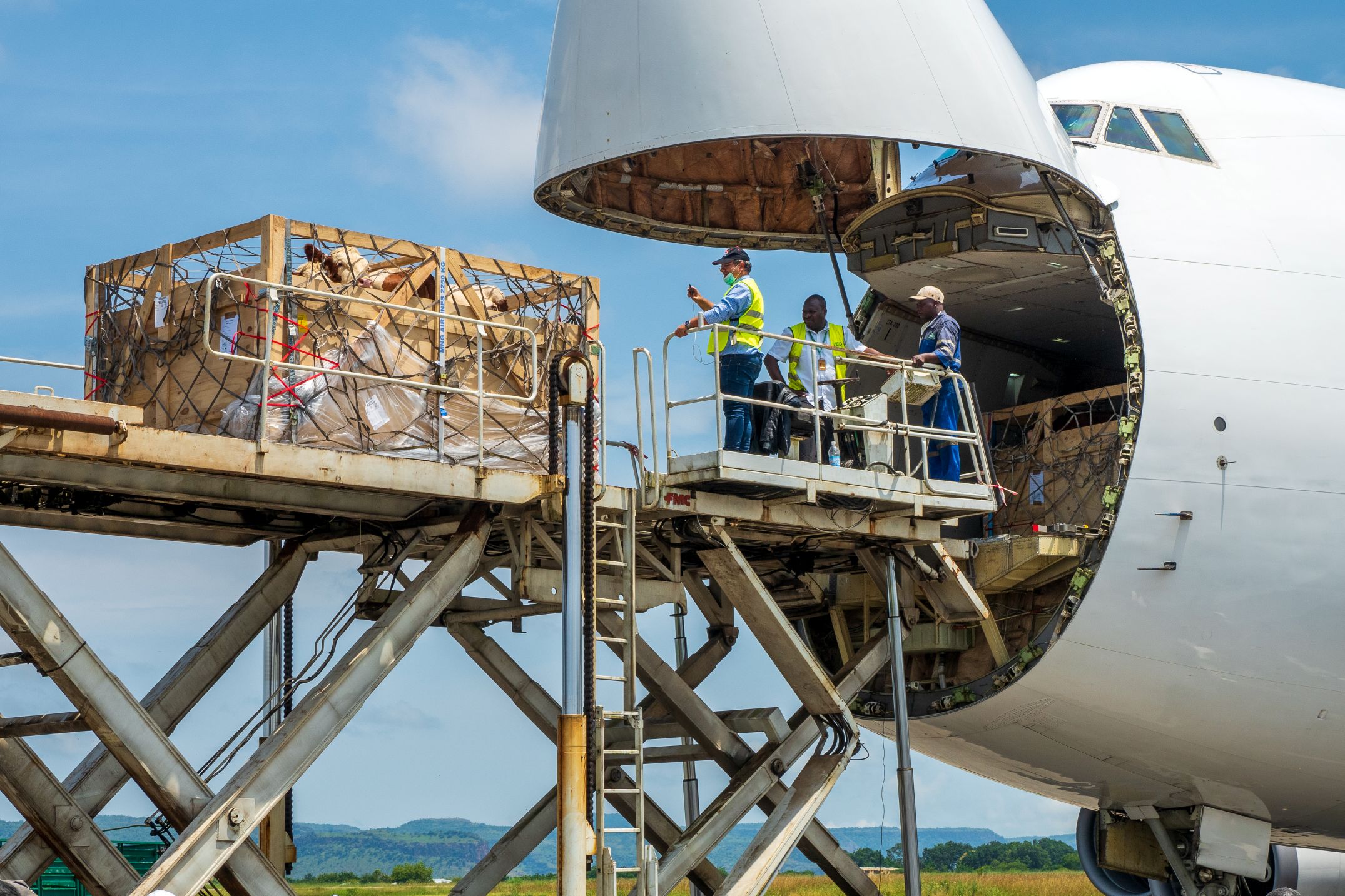The air cargo industry, a vital artery of global commerce, is undergoing a profound shift. At the heart of this evolution is the General Sales and Service Agent (GSSA), a critical partner for airlines worldwide. For decades, the GSSA model has thrived on relationships, market knowledge, and operational expertise. While these pillars remain essential, a new force is reshaping the landscape: technology. The ongoing Digital Transformation in GSSA is no longer a futuristic concept; it is a present-day reality, separating the leaders from the laggards.
Airlines increasingly seek partners who can offer more than just sales. They need GSSAs that are agile, transparent, and data-driven. This means moving beyond traditional methods and embracing a suite of digital tools that enhance every facet of the business. From booking and capacity management to customer communication and financial reconciliation, digital transformation in GSSA is unlocking unprecedented levels of efficiency and value.
At BlueX GSSA, we see this transformation not as a challenge, but as a significant opportunity. It’s a chance to redefine our role, deepen our partnerships, and deliver superior results for the airlines we represent. This article explores the key trends, tangible benefits, and practical applications of digital transformation in the GSSA sector.
Why is Digital Transformation in GSSA Crucial Now?
The air cargo industry has historically been slower to adopt digital innovations compared to its passenger counterpart. However, a confluence of factors has accelerated the need for change. The surge in e-commerce, heightened customer expectations for speed and transparency, and the operational pressures revealed by recent global supply chain disruptions have created an undeniable imperative for Digital Transformation in GSSA.
For a GSSA, relying on manual processes, spreadsheets, and fragmented communication channels is becoming increasingly untenable. These outdated methods lead to inefficiencies, data silos, and a reactive, rather than proactive, approach to business. The successful GSSA of tomorrow must be a technology-enabled strategic partner. A comprehensive Digital Transformation in GSSA addresses these pain points by integrating systems, automating workflows, and providing real-time data visibility. This allows for smarter decision-making, streamlined operations, and a competitive edge in a crowded market.
Key Trends Driving Digital Adoption
Several key technological trends are at the forefront of this industry-wide shift. GSSAs that understand and leverage these trends are positioning themselves for long-term success.
- Cloud-Based Cargo Management Systems (CMS): Moving away from on-premise servers to cloud-based platforms offers scalability, accessibility, and security. A modern CMS acts as the central nervous system for a GSSA, integrating sales, operations, and finance into a single source of truth.
- API Integration for Seamless Connectivity: Application Programming Interfaces (APIs) are the bridges that allow different software systems to communicate. For GSSAs, APIs enable direct connections with airline systems, freight forwarder platforms, and third-party data providers, automating data exchange and eliminating manual entry. The International Air Transport Association (IATA) champions this connectivity through initiatives like ONE Record, which aims to create a single, shared view of a shipment.
- Data Analytics and Business Intelligence (BI): The ability to collect, analyze, and act on data is perhaps the most powerful aspect of Digital Transformation in GSSA. BI tools can transform raw operational data into actionable insights, revealing sales trends, capacity utilization patterns, and customer behavior.
- Online Booking and Quoting Platforms: Freight forwarders now expect the same digital convenience they experience in other areas of their business. Self-service portals that allow for instant quoting, booking, and shipment tracking are becoming standard. This not only improves the customer experience but also frees up sales teams to focus on strategic relationship-building.
The Tangible Benefits of a Digital-First GSSA
Embracing a strategy of Digital Transformation in GSSA is not merely about adopting new technology; it’s about unlocking measurable business value. The benefits extend across the organization, impacting efficiency, profitability, and customer satisfaction.
Enhanced Operational Efficiency
Automation is a core component of digital transformation, and its impact on GSSA operations is immediate and profound.
- Automated Quoting and Booking: Digital platforms can process rate requests and bookings instantly, reducing the time it takes to secure cargo from hours to minutes. This speed is a critical differentiator.
- Streamlined Air Waybill (AWB) Management: Automating the creation, distribution, and management of AWBs reduces errors, ensures compliance, and accelerates the flow of information. The industry-wide push for the e-AWB is a testament to the efficiency gains available.
- Optimized Capacity Management: With real-time visibility into flight capacity and booking trends, GSSAs can make more strategic decisions to maximize load factors and yields for their airline partners. This data-driven approach prevents overbooking and identifies underutilized capacity that can be actively sold. The ongoing Digital Transformation in GSSA makes this level of precision possible.
Superior Customer Experience
In today’s competitive environment, the customer experience is paramount. Digital tools empower GSSAs to serve their freight forwarder clients more effectively.
- 24/7 Self-Service: Online portals give customers the power to manage their shipments on their own schedule. They can get quotes, make bookings, and track cargo anytime, anywhere.
- Proactive Communication: Automated tracking updates and notifications keep customers informed at every stage of the shipment lifecycle. This transparency builds trust and reduces the need for manual status checks.
- Personalized Service: By analyzing customer data, GSSAs can understand the unique needs and preferences of each client, allowing for more tailored service and targeted sales efforts. This is a key benefit of Digital Transformation in GSSA.
Data-Driven Strategic Decision-Making
Perhaps the most transformative benefit is the shift from instinct-based to data-backed decision-making. A digitally integrated GSSA has a wealth of data at its fingertips.
- Performance Monitoring: BI dashboards provide a clear view of key performance indicators (KPIs), such as tonnage, revenue, yield per kilogram, and market share. This allows leadership to quickly identify what’s working and where improvements are needed.
- Route and Market Analysis: Analyzing historical booking data can reveal profitable routes, identify emerging markets, and inform network development strategies for airline partners. This analytical depth is a core outcome of the Digital Transformation in GSSA.
- Predictive Analytics: Advanced systems can even use historical data and machine learning to forecast demand, allowing for more proactive sales strategies and capacity planning. Leading technology providers like Accenture are heavily invested in developing these predictive capabilities for the logistics sector.
How BlueX GSSA Leverages Technology for Success
At BlueX GSSA, we have placed Digital Transformation in GSSA at the core of our strategy. We understand that our success is intrinsically linked to the success of our airline partners, and technology is the key to maximizing that shared success.
Our approach is built on a foundation of a robust, cloud-based Cargo Management System. This central platform integrates every aspect of our operation, from the initial sales inquiry to the final financial settlement. This provides us, and our partners, with complete transparency and control.
We empower our freight forwarder clients with a sophisticated online booking portal. This user-friendly interface provides instant access to rates, capacity, and booking functions, mirroring the ease of use found in the best consumer technologies. By making it simple to do business with us, we build loyalty and drive volume for our airline partners.
Furthermore, we harness the power of data analytics to provide our partners with unparalleled market intelligence. Our reports go beyond simple tonnage and revenue figures. We provide deep insights into market trends, competitor activity, and strategic growth opportunities. This consultative approach, powered by data, transforms our role from a simple sales agent to a true strategic partner. This commitment to Digital Transformation in GSSA is what sets BlueX GSSA apart.
Overcoming the Challenges of Implementation
While the benefits are clear, the path to full digital adoption is not without its hurdles. A successful Digital Transformation in GSSA requires more than just purchasing software. It demands strategic planning, investment, and a commitment to change management.
- Integration Complexity: Connecting new digital platforms with legacy airline systems or various forwarder platforms can be a technical challenge. Choosing technology partners with proven API capabilities and a strong track record of integration is crucial.
- Data Security: As operations become more digitized, protecting sensitive commercial and customer data is paramount. GSSAs must invest in secure, reputable cloud infrastructure and adhere to strict cybersecurity protocols. Organizations like the Transported Asset Protection Association (TAPA) offer standards and guidance on securing supply chains.
- Training and Adoption: The human element is critical. Employees must be trained not only on how to use new tools but also on the new workflows and processes that accompany them. Fostering a culture that embraces change and continuous improvement is key to realizing the full potential of any technological investment. Executing a comprehensive Digital Transformation in GSSA is a journey that involves the entire team.
The Future is Digital, and It’s Here
The era of the traditional, relationship-only GSSA is drawing to a close. The future belongs to the digitally enabled, data-driven strategic partner. The ongoing Digital Transformation in GSSA is reshaping expectations and redefining what it means to provide value in the air cargo ecosystem. For airlines, partnering with a GSSA that has embraced this change is no longer a luxury—it’s a necessity for competing effectively in the modern global market.
By investing in integrated systems, providing seamless digital experiences for customers, and leveraging data for strategic insight, GSSAs can unlock new levels of efficiency and performance. They can become indispensable partners, driving not only sales but also long-term, sustainable growth for the airlines they represent.
At BlueX GSSA, we are committed to leading this charge. We believe that the fusion of deep industry expertise with cutting-edge technology is the definitive formula for success. Our investment in the Digital Transformation in GSSA is an investment in the future of our partners, our customers, and our industry.





